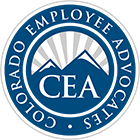The traditional American family model has changed significantly, and the norm is no longer a family consisting of one breadwinner and one homemaker. While this might be the case for some families, it is more common to have a two-paycheck family or a single-parent family. These changes were recognized back in the 1990s, which is why Congress passed the Family and Medical Leave Act or FMLA.
FMLA is a federal law that establishes a set of standards and rights when it comes to unpaid leave for employees with health issues or the need to care for a sick family member. Additionally, local and state laws provide greater protection, often expanding on FMLA.
Who is eligible for FMLA?
It should be noted that FMLA does not apply to all employers and employees. FMLA generally covers employers with 50 or more employees, public agencies with any number of employees and public and private elementary and secondary schools.
To seek FMLA benefits, an employee must meet eligibility requirements. An eligible employee is an employee that has worked for a FMLA covered employer for at least 12 months. Additionally, the employee must have at least 1,250 hours of service in the 12 months prior to FMLA leave beginning.
FMLA basics and reasons for leave
For an eligible employee, FMLA provides them with up to 12 weeks of leave in a 12-month period. Valid reasons for this leave include a serious personal injury or illness suffered by the employee, a serious family medical problem, pregnancy, adoption or the placement of a child from foster care. Employees eligible for FMLA do not need to take the 12 weeks of leave consecutively. Intermittent leave is available.
While an employee’s leave under the FMLA is unpaid, the employer must continue the employee’s health benefits as if they were still actively working. Additionally, a FMLA leave provides job protection. This means that the employer must reinstate the employee to the same or equivalent positions. Additionally, an employer cannot fire or discipline an employee for taking FMLA leave.
Whether you are encountering issues when seeking to take FMLA leave or when you returned from a FMLA leave, it is important to understand your rights as well as the responsibilities of your employer.

